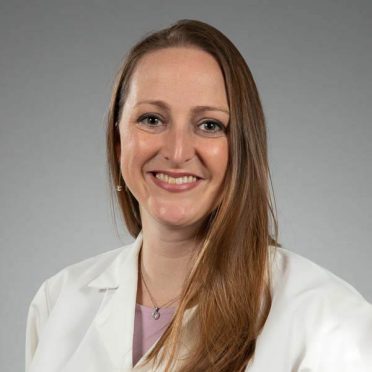“Many patients suffering from migraine are made to feel like they’re not doing something right, that the pain is ‘just in their head’”
Dr. Nicole Gill, a headache specialist with Hartford HealthCare Ayer Neuroscience Headache Center in Cheshire, says some of the stigma around migraine can be hurtful. It can also prevent people from getting better. Dr. Gill, passionate about migraine awareness, helps us understand what it’s like to live with the headaches, or someone who gets them.
It’s Not Just in Your Head
In fact, migraine can take over your whole body. Symptoms can range from moderate to severe, including sensitivity to light and sound, and nausea with movement, often to the point where you may need to retreat to a dark, quiet room.
Migraine can also have a significant impact on those not experiencing the headache.
“Family members, friends and coworkers may need to pick up the slack, for lack of a better term,” says Dr. Gill.
“Some of my patients tell me they’re unable to attend their child’s sporting event or play for fear of a migraine coming on. Also, many migraine sufferers have what we call presenteeism – they’re physically there at that event or at work – but they’re not functioning.”
Dr. Gill has a lot more to say about treatment and awareness in our More Life podcast series, Splitting Headaches:
Dr. Gill also explains the financial impact of migraine: “Missed days of work can be a burden to the individual, the family, the employer, and the economy in general due to the disability that migraines cause.”
Migraines are most common in women in their 20s, 30s and 40s.
“These are supposed to be the most productive years in our lives, going to college, starting a career and maybe a family,” says Dr. Gill, “so if you’re suffering from migraine, that can really set you back.”
Where’s the Headache Relief?
“There are two main courses of action with migraine relief, abortive and preventative treatment,” says Dr. Gill. “Preventative can be medication, supplements and lifestyle. These are the three pillars. Lifestyle can be one of the most meaningful changes a person can make. Proper hydration and sleep hygiene can be huge for a lot of people in the prevention of migraine and headaches in general.”
Listen and subscribe to Hartford HealthCare’s More Life series on Apple Podcasts by clicking here.
For more information on the Hartford HealthCare Ayer Neuroscience Headache Center, click here.
Not feeling well? Call your healthcare provider for guidance and try to avoid going directly to an emergency department or urgent care center, as this could increase the chances of the disease spreading.
Click here to schedule a virtual visit with a Hartford HealthCare-GoHealth Urgent Care provider.
Stay with Hartford HealthCare for everything you need to know about the coronavirus threat. Click here for information updated daily.
Stay fit. Stay happy. Stay healthy. And keep on top of COVID-19 with Hartford HealthCare’s daily text alerts. Subscribe by texting MoreLife to 31996.



